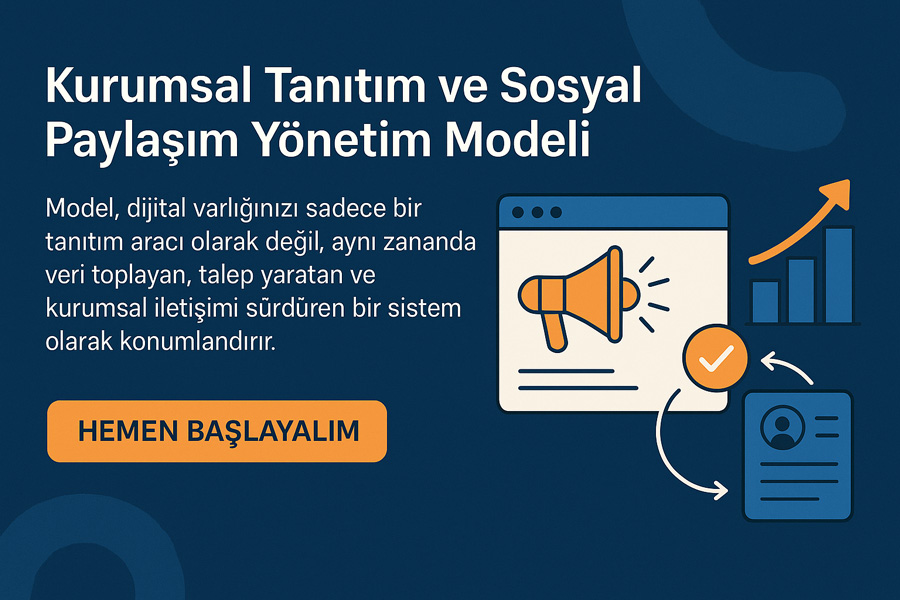Market research is a critical process for a business to understand its target audience, analyze its competitors, and determine the right strategies. An effective market research process begins with choosing the right data collection methods. While conducting market analysis, it is necessary to follow trends in the sector, determine customer needs, and understand the position of competitors in the market. The qualitative and quantitative analysis methods to be used in this process help the business gain a competitive advantage. SWOT analysis, evaluating consumer behavior, creating segmentation strategies, and interpreting market dynamics are the cornerstones of a successful research. In addition, using surveys, focus group studies, social media analysis, and digital tools while collecting data during the market research process provides more comprehensive and accurate results. Correct analyses guide businesses in terms of product development, pricing, and marketing strategies. At the end of the research process, correctly interpreting the data and taking action is a critical step for the business to strengthen its position in the market. Research conducted without performing competitor analysis, considering customer expectations and evaluating market size will be incomplete. Especially in today’s world where digital transformation is accelerating, big data analytics, artificial intelligence-supported research techniques and automation tools are among the elements that increase the accuracy and effectiveness of market research. Instead of seeing market research as a one-time process, businesses should approach it as a continuous and dynamic process. Correct market research is a strategic guide for businesses to provide a competitive advantage, meet the expectations of the target audience, and achieve sustainable growth in the market.
İçindekiler
ToggleWhat is Market Research and Why is it Important?
In today’s competitive business world, market research is a critical process that helps businesses understand their target audience, gain competitive advantage, and discover growth opportunities. The market research process should be carried out systematically to analyze consumer behavior, evaluate competitors, and determine market trends. In order for a business to be successful, it must make decisions based on accurate data, and market analysis plays a major role at this point. 📊

One of the most important advantages of market research is that it helps to understand customer needs and expectations. 🚀 A detailed analysis before developing a product or service allows businesses to create strategies that are in line with customer demands. Entering the market with the wrong strategies can cause serious financial losses and to minimize this risk the right market research methods should be used.
Advantages of Market Research for Businesses
✅ Understanding the Target Audience Better: By determining consumer segments, it clarifies which audience will be reached with which message.
✅ Knowing Your Competitors Better: Thanks to competition analysis, the strengths and weaknesses of competitors are determined and the position in the market is strengthened.
✅ Trends and Discovering Opportunities: Following current trends provides a great advantage when entering new markets.
✅ Developing Better Products and Services: Customer feedback and market analysis contribute to the improvement of products.
✅ Making Strategic Decisions: Data-based strategies minimize risks and enable more solid steps to be taken.
How to Conduct Effective Market Research?
🔍 Data Collection: Detailed information is obtained using surveys, focus groups and digital analysis tools.
📊 Market Analysis: Elements such as competitors’ strategies, pricing policies and customer loyalty are examined.
📈 Evaluating the Results: In light of the data obtained, strategic plans are created and implemented.
It is important to remember that market research is a continuous process! 🔄 The business world is dynamic and the research process should be updated regularly to keep up with changing market conditions.
Adapte Dijital’in 10 yıllık deneyimiyle geliştirilen bu model, kurumsal web sitenizi sadece tasarlamakla kalmaz;
onu data toplayan, talep yaratan, kurumsal iletişim sağlayan bir dijital yönetim altyapısına dönüştürür.
Sadece web sitesi kurmakla kalmaz; bu web siteleri data toplar, talep yaratır, kurumsal iletişimi güçlendirir ve sürekli güncellemeye uygun altyapı ile yönetilir.
As a result, without market research, businesses can make blind decisions and miss out on great opportunities. Conducting the market research process correctly and making data-based decisions is essential for a successful business strategy! 💡
Definition and Scope of Market Research
Market research is a systematic process that helps businesses understand their target audience, customer expectations, the competitive environment and market trends. 📊 This process covers the stages of collecting data, analyzing it and transforming the results into business strategies. Market research process enables businesses to make more informed decisions in the light of accurate and reliable information.
Market analysis is one of the most important methods used to determine opportunities and risks in the market. This analysis includes target audience segmentation, competitor assessment and customer needs determination. Effective market research provides businesses with great benefits in determining their position in the market and gaining competitive advantage.
Market research falls into two main categories:
1️⃣ Primary Market Research: Includes direct data collection methods such as surveys, customer feedback, focus groups, and one-on-one interviews.
2️⃣ Secondary Market Research: Based on analyzing previously collected information such as industry reports, government data, competitor analysis, and digital data sources.
As a result, Market research process enables businesses to reach the right audience, meet customer demands and achieve sustainable growth. 🔍 Conducting this process regularly is one of the keys to success in competitive markets. 🚀
Benefits of Market Research for Businesses
Market research provides businesses with critical information to make the right decisions. 📊 An effective market analysis helps businesses understand customer needs, identify competitors, and expand into new markets.
✅ Developing Customer-Focused Strategies: By analyzing consumer behavior and expectations, it ensures that products or services become customer-focused.
✅ Providing Competitive Advantage: By conducting competitor analysis, it provides the opportunity to determine which gaps the market has.
✅ Developing the Right Product and Service: Developing new products that meet the demands of the target audience and improving existing products supports the improvement process.
✅ Activating Marketing Campaigns: Helps determine customer profiles and market segmentation to create more efficient advertising campaigns.
✅ Reducing Investment Risks: Prevents wrong investments and ensures more efficient use of business resources.
Adapte Dijital’in 10 yıllık deneyimiyle geliştirilen bu model, kurumsal web sitenizi kurumunuzu/markanızı anlatan, tanıtan, güven yaratan, talep oluşturan bir dijital yönetim platformuna dönüştürür.
Adapte Dijital, bu modelde bir konumlandırma ajansı olarak çalışır. Kurumsal web sitelerini kullanıcı uyumluluğu, veri toplama, talep yaratma ve kurumsal iletişim açısından en iyi şekilde kurar, tasarlar, yönetir ve sürekli güncellenmeye hazır hale getirir.
Market research process prevents businesses from making wrong decisions and increases profitability in the long term. 🚀 Especially using big data and AI-supported analysis in digital marketing helps businesses better understand their target audience and optimize customer experience.
As a result, businesses that enter the market or develop a new product without market research may face great risks. 📉 Therefore, it is necessary to make market research a regular business process to develop the right strategies and gain competitive advantage.
The Role of Market Data for Strategic Decisions
It is essential to make decisions based on the right data to be successful in business! 📊 Market research is one of the most powerful tools that help businesses determine their strategic moves for the future.
Market data provides strategic direction to businesses in the following areas:
📌 Product Development: Market analysis is used to design new products and improve existing products according to consumer demands.
📌 Target Audience Determination: Detailed data is used to reach the most accurate customers by performing market segmentation.
📌 Competition Strategy: A market research process is applied to analyze the strengths and weaknesses of competitors and gain an advantageous position in the market.
📌 Pricing Strategies: Market dynamics and customer expectations are taken into consideration to make the right pricing.
📌 Growth and Opening to New Markets: Businesses that want to expand in different regions or sectors use market research processes to make decisions. takes.
Today, digital transformation, along with big data and artificial intelligence-supported analysis, offers businesses the opportunity to make more accurate predictions and minimize risks. 🤖 Especially tools like Google Analytics, SEMrush, SimilarWeb increase the accuracy of strategic decisions by providing businesses with real-time data while performing market analysis.
As a result, decisions made without market research data carry risks and can cause businesses to face major losses. 📉 Every business that wants to achieve strategic success should systematically collect and analyze market data and take actions based on this data. 🚀

Market Research Process and Basics Stages
The first step in creating a successful business strategy is conducting market research. 📊 The market research process plays a critical role for businesses to determine their target audience, identify their competitors, and analyze market trends. When the right data collection and analysis methods are used, businesses can gain a strong position in the market by making the right strategic decisions. 🚀
The market research process is an analysis process that must be carried out systematically and gradually. In order for businesses to gain competitive advantage and achieve sustainable growth, each stage of this process must be implemented meticulously.
1️⃣ Defining the Problem
Every market research begins with identifying a problem or opportunity. Businesses should clearly define what they need information on. For example:
- Which customer segment should be targeted for a new product launch?
- Which marketing strategies should be implemented to gain a competitive advantage?
- Which pricing strategy yields the highest conversion?
These questions form the basis of market analysis and determine the direction of the research. 🔍
2️⃣ Data Collection Methods and Sources
Two basic methods are used to collect data in the market research process:
📌 Primary Data Collection: Techniques such as surveys, focus groups, and face-to-face interviews are used to collect new information directly about the customer or market.
📌 Secondary Data Collection: Previously collected and analyzed sources such as industry reports, government statistics, and digital analytics tools are used.
Today, tools such as Google Analytics, SEMrush, SimilarWeb allow businesses to conduct digital market analysis and examine customer behavior in detail. 📊
3️⃣ Analyzing and Interpreting Data
Market analysis is the process of interpreting the collected data. At this stage, critical elements such as customer segments, competitor strengths and weaknesses, pricing strategies and trend analysis are evaluated.
🔍 Methods used in data analysis:
- SWOT Analysis: Evaluation of strengths, weaknesses, opportunities and threats
- Competitive Analysis: Examination of competitors’ positions in the market
- Consumer Trends: Measuring target audience behavior
An effective analysis enables businesses to make the right strategic decisions and evaluate market opportunities. 📈
4️⃣ Strategic Decisions and Implementation Process
In light of the data obtained, businesses should determine their marketing, sales and growth strategies. 🚀
📌 Product Development: Designing new products according to customer needs
📌 Marketing Strategies: Customizing advertising campaigns according to target audience
📌 Pricing: Determining competitive pricing policies
Finally, the market research process is not a one-time process, but a dynamic process that needs to be constantly monitored. In order to keep up with the changes in the business world, strategies should be constantly updated by performing regular analyses and examining new data. 🔄
Businesses that manage this process effectively gain competitive advantage, increase customer satisfaction and achieve long-term success! 🎯
Target Audience and Market Segmentation
One of the most critical stages of the market research process is to determine the right target audience and divide the market into segments. 🎯 In order for businesses to reach the right consumers and offer them suitable products or services, target audience analysis and market segmentation are of great importance. Market analysis helps understand customer behavior, purchasing habits and needs.
Incorrectly determining the target audience can lead to wasted marketing budgets and low conversion rates. Therefore, businesses should clarify which consumer group they want to appeal to and perform market segmentation effectively. Segmentation methods used in the market research process determine customer profiles and create more effective marketing campaigns.
Criteria for Determining the Right Target Audience
When determining the target audience, various criteria should be taken into consideration. These criteria help the business define the customer group that best matches its products or services. 🔍
📌 Demographic Criteria: Age, gender, income level, education level
📌 Psychographic Criteria: Lifestyle, values, interests
📌 Behavioral Criteria: Purchasing habits, brand loyalty
📌 Geographic Criteria: City, region or country where the customer is located
Correctly determining the target audience allows businesses to offer more personalized products and services. In this process, market research methods make it easier to offer appropriate solutions to customers by determining consumer insights. 🚀
Market Segmentation Types and Their Importance
Market segmentation allows you to define different consumer groups and develop strategies suitable for each group. When segmentation is done correctly, marketing activities become more effective and customer satisfaction increases.
The most common types of market segmentation are:
📌 Demographic Segmentation: Groups consumers according to characteristics such as age, gender, income level.
📌 Psychographic Segmentation: Separates customers according to their attitudes, interests, and lifestyles.
📌 Behavioral Segmentation: Focuses on consumers’ purchasing habits and brand loyalty.
📌 Geographic Segmentation: Separates consumers according to the region they live in.
Correct segmentation during the market research process helps businesses gain a competitive advantage and use their marketing budget more efficiently. 📊
Competitor Analysis and Competitive Strategies
One of the most important stages in the market analysis process is to know your competitors and gain competitive advantage. 🔍 Competitor analysis shows businesses the areas they are strong in and where they need to improve. By conducting an effective competitive analysis, opportunities and threats in the market can be understood more clearly.
By analyzing their competitors, businesses can evaluate their pricing strategies, marketing tactics and customer experience. These analyses help to provide competitive advantage by determining the strengths and weaknesses of competitors during the market research process.
Analyzing the Strengths and Weaknesses of Competitors
The following factors should be considered when conducting competitor analysis:
📌 Product or Service Comparison: The quality of the products offered by competitors and their pricing policies should be evaluated.
📌 Customer Feedback: Customer comments of competitor companies are examined and their strengths and weaknesses are determined. can be determined.
📌 Marketing Strategies: It should be analyzed which channels competitors use and how they attract customers.
Thanks to these analyzes, businesses can position themselves according to their competitors and develop more effective marketing strategies. 🚀

Market Positioning with SWOT Analysis
SWOT analysis is one of the most effective tools used to evaluate the current situation of competitors and the business.
📌 Strengths (Strengths): Advantages and differentiation points of the business
📌 Weaknesses: Areas that need development
📌 Opportunities: Market trends and growth opportunities
📌 Threats: Competition risks and external factors
This analysis helps businesses strengthen their market positions and be competitive. 💡
Data Collection Methods and Techniques
Data collection during the market research process is a vital step for strategic decisions. 📊 The data collected helps understand customer insights and optimize marketing strategies.
Qualitative and Quantitative Data Collection Methods
📌 Qualitative Research: Focuses on understanding customer behaviors and emotions (e.g., focus groups).
📌 Quantitative Research: Analyzes numerical data (e.g., surveys and statistics).
Using both methods together increases the accuracy of market research. 🚀
Surveys, Focus Groups, and Digital Analytics Tools
📌 Surveys: It is an effective method for collecting customer feedback.
📌 Focus Groups: Used to collect detailed insights from a specific target audience.
📌 Digital Analysis Tools: Platforms such as Google Analytics, SEMrush, SimilarWeb support digital market research.
These methods help businesses understand market dynamics and optimize their strategies. 📈
Market Analysis and Trend Tracking
Market analysis allows businesses to understand the competitive environment and follow customer expectations.
Examining Market Dynamics and Consumer Behavior
📌 By analyzing consumer trends, businesses are enabled to gain a strong position in the market.
📌 Marketing strategies are optimized by following customer loyalty, purchasing habits and trends.
Big Data and Artificial Intelligence-Supported Market Analysis
📌 Artificial intelligence algorithms provide market estimates by performing big data analysis. 🤖
📌 Businesses can make more accurate and faster decisions using digital tools.
Mistakes to Avoid When Conducting Market Research
Market research is a critical process that enables businesses to gain competitive advantage and understand customer needs correctly. 📊 However, in order for this process to be effective, mistakes must be avoided. A market analysis conducted with the wrong strategies can lead to misleading results and mislead businesses. Therefore, knowing the mistakes to be careful about in the market research process and taking precautions helps businesses achieve sustainable growth. 🚀
1️⃣ Collecting Incorrect or Insufficient Data
The success of market research depends on the accuracy of the data used. ❌ Conducting an analysis based on incomplete, outdated or biased data can lead to wrong business decisions. It is important to carefully examine primary and secondary data sources and collect data from reliable sources.
✅ Solution:
📌 Create a comprehensive data set by using different data collection methods together (surveys, customer feedback, digital analytics).
📌 Make sure the data used in market analysis is up-to-date and reliable.
2️⃣ Incorrect Target Audience Identification
Incorrect target audience selection can cause marketing campaigns to fail. 🎯 Instead of putting all consumers in the same category, it is necessary to make the right market segmentation.
✅ Solution:
📌 When determining the target audience, consider demographic, psychographic and behavioral criteria.
📌 During the market research process, analyze customer insights to determine the most accurate target audience.
3️⃣ Ignoring Competitor Analysis
Market research is not limited to just understanding customers; it also includes analyzing the strengths and weaknesses of competitors. 🔍 Not examining competitors can lead to missing opportunities in the market and making strategic mistakes.
✅ Solution:
📌 Examine the positions of competitors in detail by using the SWOT method in competitor analysis.
📌 Create your own strategy by analyzing the pricing, customer experience and marketing strategies offered by competitors.
4️⃣ Ignoring Market Trends and Consumer Behavior
Market conditions and consumer habits change constantly. 🔄 Therefore, viewing market analysis as a one-time process can be a big mistake.
✅ Solution:
📌 Regularly follow trends and consumer tendencies using digital analytics tools (Google Trends, SEMrush, SimilarWeb).
📌 Continuously update your strategies based on customer feedback.
5️⃣ Not Turning Market Research Into Results
Research alone is not enough; The data obtained must be integrated into business strategies. Many businesses fail because they do not use the data obtained after conducting detailed market research effectively.
✅ Solution:
📌 Prepare a detailed report at the end of the market research process and determine strategic actions.
📌 Optimize marketing, product development and sales processes according to the research results.
Avoiding these mistakes while conducting market research helps businesses make the right decisions and gain competitive advantage in the long term. 🚀 For a successful market analysis, attention should be paid to data accuracy, target audience selection, competitor analysis and following current trends! 🎯
Using Incomplete or Misleading Data
The accuracy of the data used in the market research process directly affects the strategic decisions of businesses. 📊 Conducting a market analysis based on incomplete or misleading data can lead to wrong target audience selections, incorrect pricing, and ineffective marketing campaigns. Many businesses make the mistake of performing analysis using only limited or unverified data.
Using incomplete data often results from poor research methodology and narrowly scoped surveys. Using misleading data is caused by incorrect sample selection or faulty analysis. Such errors can lead to adopting the wrong strategies and losing the company’s competitive advantage in the market.
✅ How to Prevent?
📌 Combine different data sources and perform validation (primary and secondary sources).
📌 Check the timeliness and reliability of the data.
📌 Reduce the margin of error by analyzing the data with advanced analytics and AI-powered tools.
Conducting a solid market research process allows businesses to act with reliable and actionable data. 🚀
Identifying the Target Audience Incorrectly
A successful market analysis starts with determining the right target audience. 🎯 The mistake of determining the wrong target audience can cause marketing strategies to be ineffective and advertising budgets to be wasted. If businesses offer their products or services to the wrong people, low conversion rates and customer loss are inevitable.
The reasons for determining the target audience incorrectly are as follows:
📌 Lack of demographic or psychographic analysis
📌 Creating misleading customer profiles due to incorrect sample selection
📌 Focusing market research on only a narrow customer group
✅ How to Prevent?
📌 Conduct comprehensive demographic, psychographic and behavioral analysis.
📌 Continuously update customer insights and follow new trends.
📌 Examine your target audience’s interests and purchasing behaviors with digital analysis tools.
Determining the right target audience increases the success of marketing campaigns and maximizes sales. 🚀
Ignoring Competitors and Strategic Mistakes
Competitor analysis is one of the cornerstones of successful market research. 🔍 However, many businesses make the mistake of ignoring competitors by focusing only on their own products and services. This can cause them to lose their competitive advantage and fall behind in the market.
Common reasons for the mistake of ignoring competitors:
📌 Not conducting competitor analysis regularly
📌 Focusing only on large and well-known competitors and underestimating the impact of small competitors
📌 Not considering competitors’ customer reviews and marketing strategies
✅ How to Prevent?
📌 Identify the strengths and weaknesses of competitors by conducting competitive analysis regularly.
📌 Clarify your business’s position in the market with SWOT analysis.
📌 Strategies implemented by competitors to create customer loyalty Develop a strategy that suits you by examining.
Analyzing competitors correctly helps businesses strengthen their strategic decisions and strengthen their position in the market. 💡

Tools That Can Be Used for Effective Market Research
Using the right tools in the market research process allows businesses to analyze their competitors, understand consumer trends and identify market opportunities. 📊 In the digitalizing world, traditional market research methods are giving way to advanced analysis tools and automation systems. While conducting market analysis Using the right technologies not only saves time but also provides more accurate data.
Digital market research tools guide businesses in many areas such as competitor analysis, SEO research, consumer behavior and trend tracking. With tools like Google Trends, SEMrush, SimilarWeb, businesses can analyze their search volumes and competitive situations. In addition, social media and online surveys are one of the fastest ways to get direct feedback from consumers.
On the other hand, artificial intelligence and automation make market research processes more efficient and accurate. Artificial intelligence-powered analyses quickly process large data sets, providing businesses with valuable insights into customer trends and market forecasts. 🚀
This article will cover digital market research tools, social media analysis methods, and the effects of artificial intelligence on market research. Get ready to discover how you can increase your business’s competitive advantage by using the right tools!
Digital Market Research Tools and Software
Today, digital tools provide great convenience to businesses in the market research process. Various digital platforms are used to analyze competitors, follow consumer trends and examine SEO data while conducting market analysis.
Digital market research tools include:
📌 Keyword analysis and SEO tools (Google Trends, SEMrush, Ahrefs)
📌 Web traffic analysis tools (SimilarWeb, Google Analytics)
📌 Competitive analysis software (SpyFu, BuzzSumo)
📌 Consumer feedback and survey systems (SurveyMonkey, Typeform)
These tools help businesses better understand their target audiences and develop effective marketing strategies. Supported by accurate data market research provides businesses with great advantages in terms of both time and cost.
Using Google Trends, SEMrush, SimilarWeb
Google Trends, SEMrush and SimilarWeb are some of the most used tools in digital market research. 🚀 These platforms provide businesses with detailed information on SEO analysis, competitive research and trend tracking.
📌 Google Trends: It is used to analyze keyword popularity and seasonal trends. Businesses can discover which topics are searched more in which regions.
📌 SEMrush: It is a comprehensive platform for competitor analysis, SEO research and advertising strategies. It is used especially to determine the strengths and weaknesses of competitors in the market research process.
📌 SimilarWeb: It is used to analyze the traffic and visitor behavior of websites. It shows which sources the traffic comes from and market trends by performing competitive analysis.
✅ These tools offer great advantages to businesses in making strategic decisions while doing market research. To provide competitive advantage and you can actively use these platforms to create a better marketing plan. 📈
Using Social Media and Online Surveys
Social media and online surveys are very effective methods for understanding consumer behavior. 💡 Customer feedback is used to determine the expectations of the target audience and market analysis provides important insights.
📌 Social Media Analysis: Businesses can identify trends by analyzing user interactions on platforms such as Facebook, Instagram, LinkedIn and Twitter. It is possible to understand consumer expectations through comments, likes and shares.
📌 Online Surveys: Customer opinions can be obtained directly using tools such as SurveyMonkey and Typeform. It is possible to strengthen the market research process by asking customers questions about products or services.
✅ Social media and surveys help businesses better understand their target audiences and make critical decisions in the product development process. Since these methods are based on direct consumer feedback, they provide highly reliable results in the market research process. 📊
The Impact of Artificial Intelligence and Automation on Market Research
With the development of technology, market research is no longer limited to manual analysis. 🤖 Artificial intelligence and automation systems accelerate the market research process and increase its accuracy by analyzing big data.
📌 Artificial intelligence-supported market research analyzes customer behavior and allows businesses to make accurate predictions.
📌 Automation tools continuously process data and can detect changes instantly.
✅ Artificial intelligence and automation are one of the most important factors shaping the future of market analysis. These technologies provide businesses with the opportunity to conduct more efficient and effective market research, providing a competitive advantage. 🚀
As a result, digital tools used in market research, social media analysis and artificial intelligence-supported automation systems help businesses make more informed and successful decisions. 📈 Competitive advantage to make the most of these technologies to achieve profit and sustainable growth! 🚀
You can get detailed information by watching our founder Gürbüz Özdem’s Digital Consulting and Digitalization video.
Adapte Digital’s Success Stories: Meet Our References
With the comprehensive services offered by Adapte Digital, you can take your business to the next level in the digital world, expand your customer base and increase your brand awareness. Contact our expert team and turn your digital journey into a success!
Witness Adapte Digital’s success stories! Visit Our References page now to take a look at our projects that make a difference in the digital world and see how we ensure customer satisfaction. Take your place for a strong digital transformation!



















































